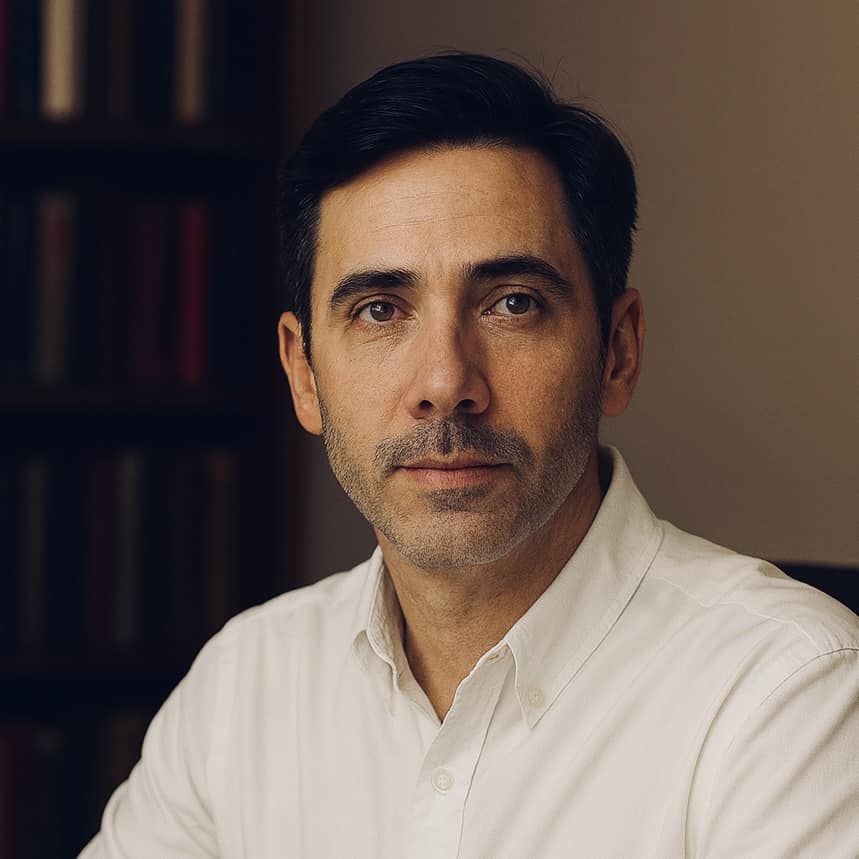At its core, human nature is selfish; “good” and “evil” don’t tell the whole story.
In everyday life we like clean labels. Someone gives generously, we call them good. Someone grabs the bigger slice, we call them bad. But look closer, inside families and companies, across communities and even among nations, and the picture gets more complicated. People are not born saints or villains; people are born to survive.
Cloverlogy’s simple but demanding position is this: human nature is neither purely good nor purely evil; at its core, it is selfish, a built-in survival mechanism. That idea can feel harsh, yet it isn’t a defense of wrongdoing. It’s a lens. When you see the engine behind behavior, you can choose better strategies, set clearer boundaries, and live with more autonomy and meaning.
This essay opens the box labeled “selfishness”: why it exists, how it shows up at the personal, social, and global levels, when it looks “good” or “evil,” and – most importantly – how to survive wisely in a society whose baseline is self-interest.
1. Human Nature: Good, Evil, or… Selfish?
From childhood we’re told to “think of others.” That message is helpful; it makes society run smoother. But if we stop there, disappointment is guaranteed, especially when we meet betrayal, office politics, or simple indifference. We slap an “evil” label on people and wonder why life feels unfair.
Here’s the blunt reality: selfishness – properly understood – is the act of prioritizing one’s own interests first. It is not the same as harming others. It’s a built-in order of priority. Think of airline safety instructions: put on your oxygen mask first, then help the person next to you. That isn’t cold; it’s common sense. If you pass out, you can’t help anyone.
So where do “good” and “evil” fit? They’re moral labels we use to judge the outcomes of behavior in specific contexts. The same survival impulse, protecting what’s yours, can look “good” in a positive-sum environment and “evil” in a direct conflict of interests. The core motive doesn’t change; the context does.
See people this way and you drop the naivety without growing cynical. No halos, no horns, just fellow humans running the same operating system you are.

2. Selfishness Is a Survival Mechanism
The Cause: Finiteness
We live on a planet with finite resources and finite space. Energy, time, attention, jobs, pasture, capital, none of it is unlimited. Scarcity creates competition. Competition wakes up self-protection. Self-protection pushes us to prioritize ourselves. That’s the logic chain.
The Goal: Maximize the Odds of Survival
In a competitive world, selfishness acts like a default processor: “How do I avoid loss? How do I stay safe? How do I improve my position?” People who never defend their legitimate interests tend to get exploited, sidelined, or burned out trying to please everyone.
Proof at Three Levels
1. Biology – pure instinct.
A newborn wailing for milk is the clearest example. That cry is a survival signal, not a moral decision. The baby isn’t “bad” for waking you at 3 a.m.; the baby is protecting life. We grow up and acquire language, ethics, and culture, but the survival kernel stays in the code.
2. Society – interests shape behavior.
In friendship, work, and love, decisions often trace the path of interests. That doesn’t reduce everything to cash value; it means incentives pull behavior like gravity. Clashes of interest produce betrayal, turf fights, credit-stealing. Aligned interests produce collaboration, generosity, and loyalty.
3. The world stage – macro mirrors micro.
Nations compete for resources and influence; corporations compete for market share, technology, and talent. That is self-interest at the system level. You may not like it, but the game plays on: those who guard their interests poorly fall behind; those who align self-interest with fair rules lead.
Across these three layers runs one clean line: finite reality → competition → self-protection → self-priority. In other words, selfishness is baked in. Not good, not bad – just there.

3. When Does Selfishness Look “Good” or “Evil”?
The “Good” Face – When Interests Don’t Collide (or Rise Together)
When your interests don’t collide with mine, or better, when both can grow, selfishness shows up as kindness. I share because sharing doesn’t reduce my stake (or improves it through reputation, trust, or future opportunities). A business that serves customers obsessively is doing a “good” thing and a smart thing. That’s intelligent self-interest, choosing positive-sum games.
Note: This “good” appearance doesn’t prove people are angels. It proves the environment and rules are well designed. Peace, prosperity, and transparent law reduce head-on conflicts and encourage kindness to flourish.
The “Evil” Face – When Interests Are Directly Threatened
When resources are scarce and your core interests feel threatened, selfishness can flip into hard defense: exclusion, aggression, indifference to others’ pain. War is the amplified version: each side believes it’s righteous, but the bill comes in blood and grief. In daily life you see it in toxic workplaces: factions, backstabbing, credit theft, blame-shifting, the symptoms of unmanaged interest collisions.
Bottom line: selfishness itself isn’t good or evil. It’s a neutral motor. Context and rule-design decide whether it steers toward building or breaking.
4. How to Survive in a Selfish Society
If self-interest is the default and scarcity is the setting, the practical question is this: How do you avoid being swallowed while keeping your integrity and peace? Here’s a Cloverlogy-style playbook, direct, usable, and honest.
4.1. Understand and Accept Reality
- Accept first, improve second. Reality won’t bend because we dislike it. Accepting the selfish baseline helps you skip the shock, avoid illusions, and draw boundaries.
- Don’t personalize everything. Many abrasive behaviors aren’t about you; they’re about someone else’s interests. Separate the person from the behavior to respond strategically.
4.2. Live for Yourself, Not for Others’ Expectations
- Oxygen mask rule. Health, capability, finance, time, attention, those are your four energy tanks. Don’t give from empty.
- Build a personal rulebook. Define your goals, principles, and limits. If you don’t, the crowd will define them for you, and you’ll burn out living someone else’s story.
- Pick the right role. Not everyone needs to be a rescuer. Sometimes the best role is system-builder: create products, processes, and standards that help many people without you bleeding out.
4.3. Hold Principles; Don’t Chase the Crowd
- Truth before popularity. Majority ≠ correct. Make it a habit to check reality: What are the facts? What’s the motive? What are the second-order effects?
- Reduce relationship risk with four questions:
- Are the rules here clear?
- Are rewards and responsibilities linked?
- Are conflicts solved by process or whim?
- Is power held accountable?
If most answers are fuzzy, proceed carefully.
4.4. Control Your Self-Interest – Smartly
- The golden rule: You may put your interests first, but do not harm others. If protecting yourself requires harming people clearly and unfairly, walk away. Money and status recover; character doesn’t.
- Switch from “grabbing slices” to “baking a bigger pie.” Invest in capability, not just positioning: rare skills, valuable products, a reliable reputation. When you grow the pie, your self-interest collides less.
- Prefer positive-sum games. Work with people who default to mutual wins. Avoid games where one side can only win if the other loses (beyond fair sport).
4.5. “Fewer Friends Is Fine. Fewer Enemies Is Better.”
- Minimize pointless battles. Not every fight is worth the emotional capital. Calculate the return on emotion (ROE): does winning this argument serve the long-term goal? If not, let it pass, not out of weakness, but wisdom.
- Firm but limited retaliation. When wronged, respond clearly and proportionally, and leave a door open if the other side reforms. Over-punishing creates new enemies and burns your own reputation faster than theirs.
4.6. Design an Ecosystem, Not Just One-Off Relationships
- Three rings of trust:
- Signals: promises and talk.
- Behavior: habits and track record.
- Outcomes under stress: what they choose when interests collide.
Upgrade cooperation only when all three align.
- Contracts, processes, checkpoints. Warm feelings do not replace system design. Clear paperwork reduces misunderstandings and saves friendships.
- Positive leverage. Cultivate credible reputation and distinct value. When your value is obvious, good partners find you and bad actors think twice.
4.7. Read Interests So You Don’t Get Used
- The L–F–N scan (Lust–Fear–Need):
- What do they want?
- What do they fear losing?
- What do they need that you can supply?
If you can’t map this triangle, you’ll likely play by their script without knowing it.
- Praise is lubricant, not proof. Accept compliments gratefully, but stay alert: what ask follows the praise?
4.8. Discipline and Boundaries: The Bedrock of Freedom
- Discipline is your fortress. Sleep, food, training, learning, money, discipline keeps the tanks full, so you don’t sell yourself cheap when you’re weak.
- Boundaries are your guardrails. Burnout, bad debt, toxic ties – set red lines early. One timely “no” protects ten future yeses.
- Shun empty status. Good reputation is a by-product of real value. Empty status is bait that lures you into spending real resources on theater.

5. Redefining Compassion in a Selfish World
A common fear: if selfishness sits at the core, do we become cold? No. Compassion doesn’t die because we understand self-interest; compassion dies when we deny reality and exhaust ourselves.
Compassion that endures in a finite world works like this:
- Strategic compassion. Choose leverage points, places where one unit of effort creates many units of good.
- Bounded compassion. Give freely when your tanks are full; when they’re low, mask up first.
- Disciplined compassion. Don’t enable exploitation. Help people stand up, not ride on your back forever.
- Designed compassion. Build systems, products, processes, funds, norms, so the good scales without you bleeding to keep it alive.
In short, “good” stops being a mood and becomes architecture of incentives, where your good doesn’t cancel someone else’s.
6. Myths to Drop
Myth 1: “Selfish equals bad.”
No. Selfishness is priority order. Bad is choosing to harm. You can put yourself first without hurting anyone, that’s principled self-interest.
Myth 2: “To be moral, always sacrifice.”
No. Blind sacrifice breeds resentment and collapse. Morality is balancing interests: doing the right thing within your means, and designing systems that make the right thing easier.
Myth 3: “If I’m sincere, others will be, too.”
We wish. Sincerity is a plus, not armor. Pair sincerity with contracts, process, and checkpoints.
Myth 4: “Many friends mean you’re good.”
Not necessarily. Many thin ties scatter your focus. Better to have fewer deep ties that share positive-sum rules. “You don’t need many friends, but the fewer enemies the better.”
7. Quick Practice Toolkit (Cheat Sheet)
Three questions before any relationship decision:
- Does this align with my principles?
- What are the long-term interests, and do they clash hard?
- If it goes south, do I have a safe exit?
Related reading, Life runs on relationships: Why going it alone is an illusion?
Four energy tanks to keep full:
- Body: sleep, food, movement.
- Mind: focused learning.
- Heart: calm, emotional boundaries.
- Wallet: reserves, no toxic debt.
Three layers of protection in collaboration:
- Clear scope (goals, boundaries, metrics).
- Clear rewards and duties (who gets what, who carries what).
- Clear conflict path (who arbitrates, what timeline).
When wronged:
- Document → Respond through the proper channel → Request a fix → Activate protections → Allow re-entry if behavior changes.
- Skip wild revenge. It burns your reputation asset fastest.
Bake the bigger pie:
- Invest in rare skills + high reliability.
- Create measurable value before demanding returns.
- Prefer civil rule sets; if you can’t improve the rules, change arenas.

Master Self-Interest to Gain Freedom and Meaning
Accepting that self-interest sits at the core is not surrender to darkness; it’s clarity about how humans operate in a finite world. With that clarity, betrayal shocks you less, naive fantasies fade, and you don’t harden into a cynic.
You master self-interest by setting principles, building capability, choosing positive-sum games, keeping discipline and limits, and minimizing enemies. In that frame, selfishness doesn’t drag you down; it becomes the engine that powers real value, protects what matters, and funds sustainable generosity.
In the complex web of modern relationships, autonomy doesn’t come from proving you’re “better” than others. It comes from knowing which game you’re playing, which rules govern it, which values you won’t trade, and how to exit safely when the game turns ugly. You don’t need many friends, but the fewer enemies the better. You don’t have to please the world, but you must be honest with yourself.
That’s how you live awake in a selfish society: see the motive, choose the rules, create value, guard your dignity. Then you won’t just survive; you’ll grow and be free, right here in this world, not in some imagined afterlife.












